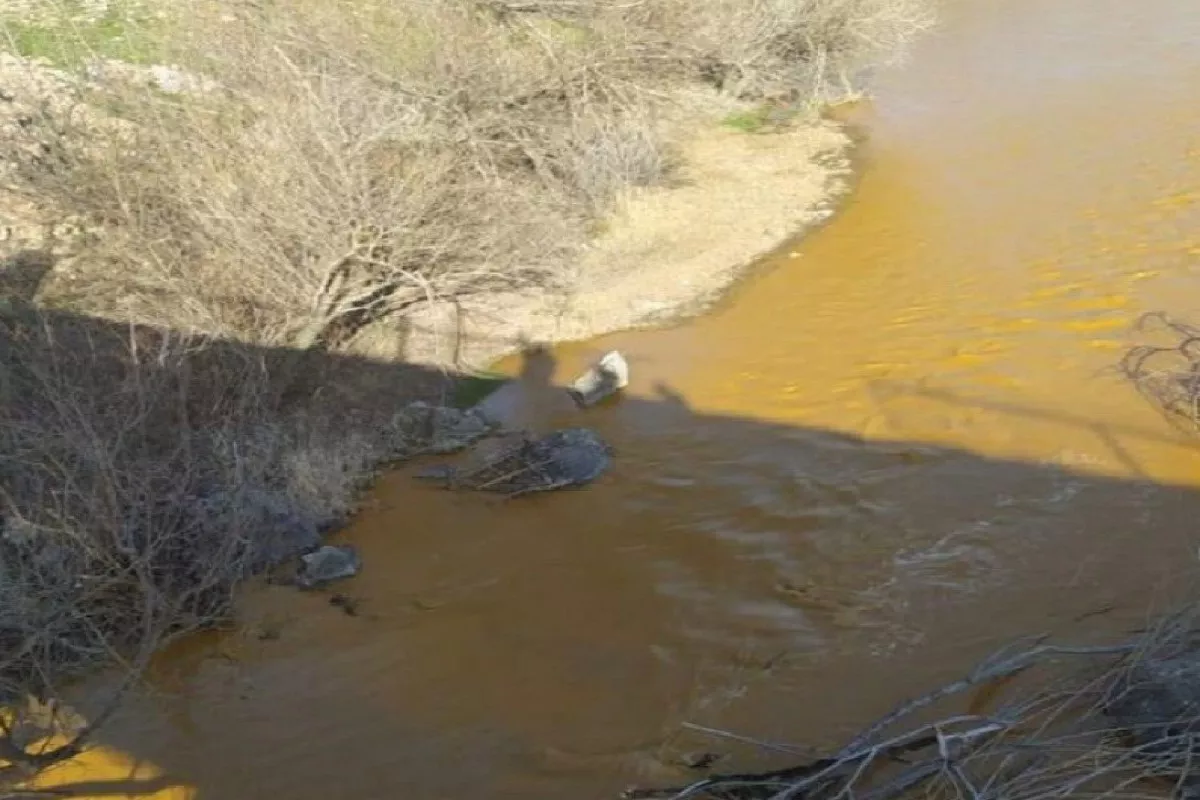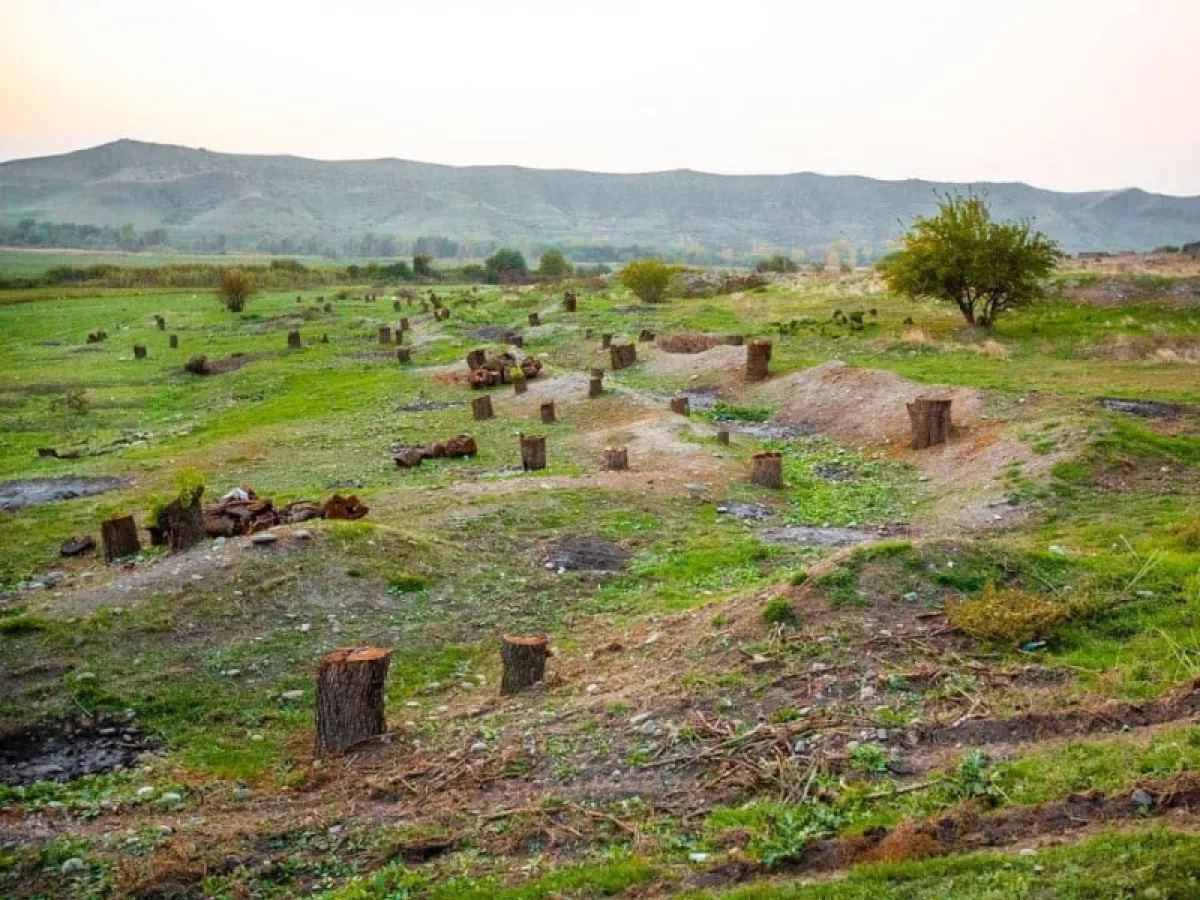Pashinyan’s ecological demagoguery From deforestation to river pollution
“He lies as easily as he breathes—and he breathes often.” This phrase from a well-known joke seems to have permanently stuck to Armenian Prime Minister Nikol Pashinyan. We have repeatedly commented on his laughable attempts to transform himself from a “hawk,” which he was until November 2020, into a “dove of peace” following the 44-day war—especially after Azerbaijan fully restored its sovereignty and territorial integrity as a result of the one-day anti-terror operation in the Karabakh region.
Just recently, Pashinyan, once again donning a guise uncharacteristic of him, decided to touch upon the topic of biodiversity. It is worth noting here that the International Day for Biological Diversity was proclaimed by the UN General Assembly in 1995 in a special resolution (No. A/RES/49/119), based on a recommendation from the Conference of the Parties to the Convention on Biological Diversity, which took place in 1992. Since 2001, it has been observed annually on May 22—the date the Convention was signed.
Thus, true to form—rushing in and putting the cart before the horse—Pashinyan decided to speak out on the matter in advance. But the issue is not just his untimely haste. Pashinyan once again saw fit to lie, stating, in particular, the following:
“Armenia highly values the vital role of the UN Convention on Biological Diversity (CBD), its Protocols and the Kunming-Montreal Global Biodiversity Framework (KMGBF), as cornerstones of our global efforts for biodiversity preservation, sustainable use of the environment and equitable benefit sharing in a whole-of-government and whole-of-society manner and with full, active and meaningful involvement of Indigenous Peoples and local communities, youth, women, civil society and academia.”
In addition, he noted that “As the host and presidency of the Biodiversity COP17 to be held in Yerevan in 2026, Armenia looks forward to contributing to the advancement of the objectives of the Conventions, its Protocols and the Global Framework.”
All of this is crude, easily disprovable, primitive falsehood—and sheer absurdity. The truth is that Armenia, in violation of the norms and principles of international law, occupied 20% of the UN-recognised territory of the Republic of Azerbaijan for nearly 30 years, committing large-scale environmental crimes on these historically Azerbaijani lands.
Following Azerbaijan’s victory in the 44-day war, horrifying facts of ecoterrorism began to emerge—from systematic deforestation to river pollution and the destruction of nature reserves. In other words, the Armenian occupation of Azerbaijani territories was accompanied by the deliberate destruction of the environment, which today requires international legal and ecological assessment.
According to the Ministry of Ecology and Natural Resources of the Republic of Azerbaijan, during the years of occupation, tens of thousands of hectares of forest were destroyed—over 60,000 hectares in the Kalbajar, Lachin, Zangilan, and Shusha districts alone—including valuable tree species such as oak, beech, and hornbeam. Biocenoses were disrupted, and the habitats of many rare and endemic species were destroyed. This led to a loss of biodiversity, worsening erosion processes, and an increased risk of landslides.

To the above, one must also add the ongoing pollution of water resources. For example, the Okhchuchay River, which flows through the Zangilan district, was subjected to continuous contamination throughout the occupation period. This pollution was caused by mining operations both in Armenia and on the occupied Azerbaijani territories. In particular, untreated industrial waste from the copper-molybdenum plants in Goris and Kapan was discharged into the river. The levels of heavy metals such as copper, molybdenum, cadmium, and arsenic in the water significantly exceeded permissible limits. This pollution had a detrimental impact on the river's ecosystem.
It should also be noted that illegal extraction of natural resources was actively carried out in the previously occupied territories of Azerbaijan. For decades, Armenian and foreign companies exploited deposits of gold and other minerals. For instance, the “Gizilbulag” gold mine in the Kalbajar district was operated by the Vallex Group. Meanwhile, the “Damirli” deposit in Aghdara was exploited in flagrant violation of international standards—using technologies involving toxic reagents such as cyanides, without proper land reclamation. And this list goes on.
Even after the signing of the Trilateral Statement on November 10, 2020 and prior to the return of several districts to Azerbaijan, Armenians deliberately set fire to homes, forests, and agricultural lands. In particular, there were documented cases of mass forest fires in the Zangilan, Jabrayil, and Kalbajar districts, which led to the destruction of irrigation infrastructure.

Overall, Armenia’s actions in the formerly occupied territories can be classified not only as environmental crimes but also as ecocide—the systematic destruction of nature. It is important to emphasise that, according to the Rome Statute of the International Criminal Court, large-scale environmental destruction that poses a serious threat to ecosystems and human life can be considered a crime against humanity.
One cannot ignore the often unregulated extraction of natural resources within Armenia itself, particularly in areas near the border with Azerbaijan. For instance, the operation of the Amulsar gold mine has repeatedly drawn criticism not only from Azerbaijani environmentalists but also from international organisations. According to Azerbaijani experts, mining activities in high-altitude regions with fragile ecosystems—conducted without adherence to modern safety standards—lead to soil erosion, contamination of drinking water sources, and deforestation.
Azerbaijan has repeatedly raised the issue of environmental security in the region on international platforms. Notably, in 2021, the Azerbaijani side presented evidence of pollution in the Okhchuchay River at a session of the UN Committee on Ecology.
In light of all the above, Nikol Pashinyan’s latest false claim that “Armenia highly values the important role of the UN Convention on Biological Diversity” sounds both absurd and cynical. But as we’ve already noted: Pashinyan lies as easily as he breathes—and he breathes often.








